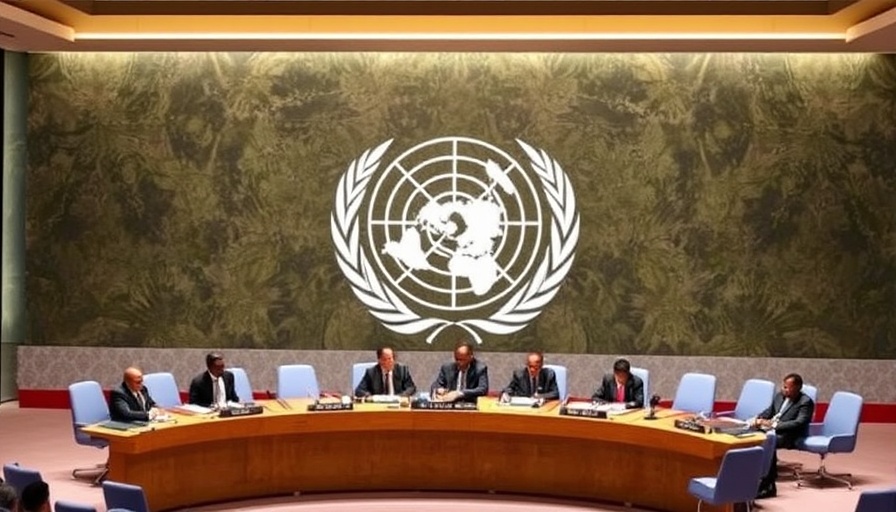
A Step Towards Greater Influence: DRC and Liberia in the UN Security Council
In a significant move for African representation on the global stage, the Democratic Republic of Congo (DRC) and Liberia have been elected to serve as non-permanent members of the United Nations Security Council (UNSC). With 183 votes for the DRC and 181 for Liberia during the United Nations General Assembly elections, this decision solidifies their roles as voices for Africa's interests in discussions on international peace and security.
Historical Context: The Significance of African Membership in the UNSC
This election marks a pivotal moment not just for these nations but for the African continent as a whole. The DRC's election, in particular, highlights a growing recognition of the nation’s efforts towards stability amid ongoing internal conflict. Previously, the DRC has been involved in significant UNSC decisions and received considerable UN intervention, notably under the Monusco peacekeeping force.
A New Era of Multilateral Diplomacy for the DRC
As the DRC prepares to take its seat in January, there is a palpable sense of optimism within its current leadership. President Félix Tshisekedi’s administration sees this as an opportunity to reshape not only its diplomatic engagements but also to advocate for reforms that enhance African representation in global governance. The DRC's historical participation in the UNSC—having served twice in the past—provides a foundation for renewed influence.
Implications for African Foreign Policy and Global Relations
For policymakers and business leaders, this shift is critical. The DRC and Liberia's seats on the UNSC present an opportunity to rethink Africa’s role in global trade and political governance. They are likely to champion causes pertinent to African nations, such as addressing geopolitical conflicts, fostering international trade relations, and enhancing Africa's bargaining power in forums like the G20 and BRICS.
Future Trends in Africa’s Global Engagement
With exemplary leadership, the DRC aims to tackle persistent challenges, including negotiations with rebel factions and improving ties with neighbors, particularly Rwanda. The ongoing negotiations, supported by international mediators, may set the stage for broader peace and stability in the region—essential for economic recovery and growth in African financial markets.
As these developments unfold in the coming months, investors, policy analysts, and stakeholders should monitor how these nations leverage their new positions to influence African foreign policy and international relations. Therein lies potential for enhanced partnerships, particularly in the digital economy and sustainable business practices, as more African nations claim their space in global governance.
 Add Row
Add Row  Add
Add 


 Add Row
Add Row  Add
Add 

Write A Comment